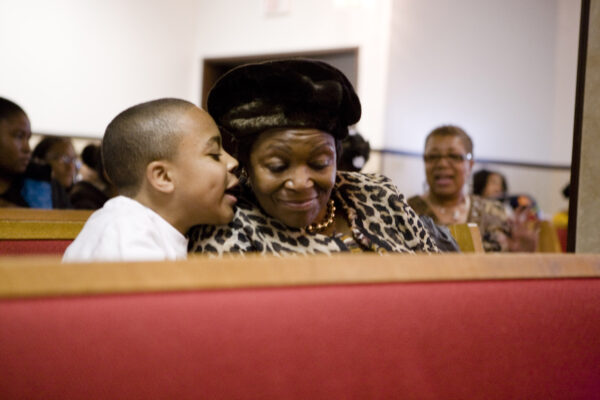KPCC’s Take Two took on the question of how parents can introduce their kids to religion and spirituality. CRCC Executive Director Brie Loskota offered her expertise in both religion and parenting for The Brood, Alex Cohen’s weekly parenting segment. She was joined by psychologist Lisa Miller, author of The Spiritual Child: The New Science on Parenting for Health and Lifelong Thriving.
Loskota spoke of the “common understanding of things like awe and wonder at the world” that she and her scientifically minded husband share with their three children.
Both she and Miller also discussed getting involved in religious communities and organizations. Loskota specifically spoke of the wide variety of religious options available to people in Los Angeles, sharing one of CRCC’s findings from its research on religious creativity and innovation:
People aren’t solving this question for themselves by affiliating with one place [of worship], they’re solving this question for themselves and their families by curating a set of experiences and affiliations that tailor make their orientation to religion in a way that feeds all of their needs and commitments and questions. So somebody might do Buddhist meditation and also might be a Reform Jew… The empowerment of people to create their own ways of engaging multiple religious traditions or multiple experiences rather than picking one and staying in that lane can be a really complicated questions for religious leaders and institutions, but that’s really what’s happening on the ground for many people.
Miller recommended that while people are going on their own spiritual journeys, they should bring their children along, rather than leave it for them to figure out later in life. Loskota, for instance, may no longer embrace the theology of her Pentecostal upbringing, but there are many parts of her parents’ faith that she appreciates, she said.
It’s OK if parents do not have all the answers, Loskota added. “In faith, unless you are quite certain and dogmatic, there’s a lot of room for ‘I don’t know, let’s find out together.'”
Cohen concluded the discussion with asking about how to talk to your children about disbelief. Loskota responded:
Having inclusive language where you are able to represent a reflection of who is in your community to your children is always valuable. I have a colleague who runs an atheist and agnostic group, and it’s really a group for people who are looking for answers of meaning and purpose and community, but outside of the traditional religious environment. And so through my interaction with him, I have become more consciously aware that while we talk about religion or spirituality, we don’t want to exclude people who don’t make their meaning in the same way that we do in our family. So I talk about that with my kids as a way to explain who they know and who we interact with.
Click here to listen to the full interview.
Photo Credit: Matt Gainer





